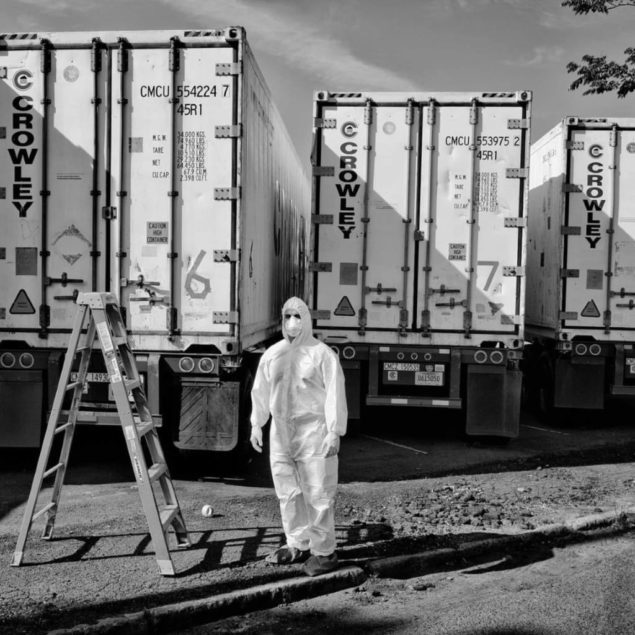After Hurricane Maria devastated the island of Puerto Rico with Category 4-force winds in September 2017, government officials placed the death toll at 64, drawing intense criticism from experts and local residents. A study from Harvard University later estimated the actual death toll to be far greater – more than 4,600.
A team of researchers from FIU’s Steven J. Green School of International & Public Affairs (SIPA), some of whom were in Puerto Rico when the storm hit, have produced a new documentary that examines how the storm’s impact became the subject of a highly politicized debate, calling into question the science behind how hurricane damage is assessed.
“It reflects on the deteriorating relation between science and government and the growing erosion of trust in key institutions, even on something like disaster management, which has historically been one of the least politicized areas of government practice,’’ said Nelson Varas-Díaz, professor in the Green School’s Department of Global & Sociocultural Studies (GSS) and the director of the film.
“Collapse” – the title of the film, referring to the collapse of Puerto Rico’s healthcare system after the storm – has been accepted into several film festivals and already been named .
It premieres live online at collapsepr.com on Friday, Sept. 20 and will be available for viewing through Sept. 23.
Varas-Díaz, who has produced several award-winning documentaries, collaborated on the project with fellow GSS professors Kevin Grove, Mark Padilla and Sheilla Rodríguez Madera.
“Members of our team experienced the aftermath of Maria firsthand,’’ he said. “We were able to see the consequences of the hurricane and the debate over the number of dead. We were taken aback when the results of the study became an international political discussion.”
“Collapse” is told through the eyes of one of the lead researchers on the Harvard study, Domingo Marqués, who was also in Puerto Rico during the storm.
“We hadn’t seen damage like this in the past 100 years,’’ Marqués says in a trailer for the film. “The people were very cognizant of the situation. We understand that this was a disaster. However, the government’s rhetoric was, ‘nothing major has happened here.’ We knew that (their) number was wrong. We knew it was in the thousands.”
Marinilda Rivera Díaz, a social worker and researcher at the University of Puerto Rico, said the film raises critical issues about how governments respond to disasters.
“This documentary awakens an urgent discussion about the role of social scientists in the process of responding to crises in our countries,” she said. “Collapse not only does justice to those who died after Hurricane Maria, but to social research that is produced for the benefit of our people – a powerful tool that unmasks the realities we face as a country.”
Varas-Díaz said he views documentary film as a way to promote discussion with the public, who may never read academic journals.
“We hope to foster a discussion on the need to listen to the science, particularly when dealing with issues related to catastrophic events and natural disasters,” he said. “There are forces at hand that aim to silence the research and these must be confronted and discussed openly.”






